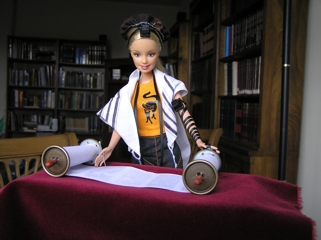
Hot on the heels of their merger with the Shefa Fund last year, on Monday Jewish Funds for Justice (JFSJ) announced that they will merge with Spark: The Partnership for Service. This merger brings together, on the one hand, one of the major players in the movement to make social justice a normative part of the Jewish experience, and on the other, one of the most exciting, innovative, and successful social justice programs - with a particular focus on teen experiences. See, for example, their chart of the "ten elements of high quality Jewish service learning."
Spark runs three main programs, as described succinctly in their press release:
The Baltimore-based Spark was founded in 2000 to inspire a commitment to service as an ongoing part of each person's life and an important expression of Jewish identity. Thousands of students have participated in one of Spark’s three signature programs.- HeartAction provides intergenerational service to the elderly and the ill.
- LiteracyAction creates ongoing relationships between educationally at-risk elementary school students and volunteers from Jewish groups.
- Nitzotz, a four year-old summer program and partnership with BBYO, provides an intensive two week residential Jewish service learning experience for teens from across the country.
On the JFJS blog jspot.org, Mik Moore writes that JFSJ had only recently begun to experiment with service learning trips, and this merger will greatly expand their ability to create such opportunities:
"It is impossible to travel to the Gulf Region, meet with people whose lives remain in turmoil, hear from local organizers, and not be moved to action. Integrate serious Jewish learning into the trip - as we do - and service has the potential to be transformative. Our expectation and intention is that service learning volunteers will become advocates and organizers, perhaps active in congregation-based community organizing through their synagogues."
The press release also quotes Michael Steinhardt, one of the five primary funders of Spark, extolling the benefits of the merger: “We are excited that the merger will enable us to take Spark’s innovative pilot to a larger scale."
This has been a good week for Steinhardt's initiatives -- the JTA
reported yesterday that "America’s third wealthiest man" Sheldon Adelson "pledged $25 million to
birthrightisrael." This donation will enable the organization to double the number of free trips to Israel that it offers Jewish youth.
The above image, by the way, comes from the
Ziv Tzedakah Fund website. In addition to their incredible and ground-breaking work as a collective, they also provide a wide range of educational materials, ranging from a
curriculum on mitzvot and tikkun olam to an inspirational
educational video featuring Israeli "mitzvah heroes."
 Jen Taylor Friedman's "Tefillin Barbie" broke out of the blogosphere to appear in Jewish Week this past week.
Jen Taylor Friedman's "Tefillin Barbie" broke out of the blogosphere to appear in Jewish Week this past week.  Either way, I think both would make a great companion for those mini-Torahs that you get on Simchat Torah every year.
Either way, I think both would make a great companion for those mini-Torahs that you get on Simchat Torah every year.


